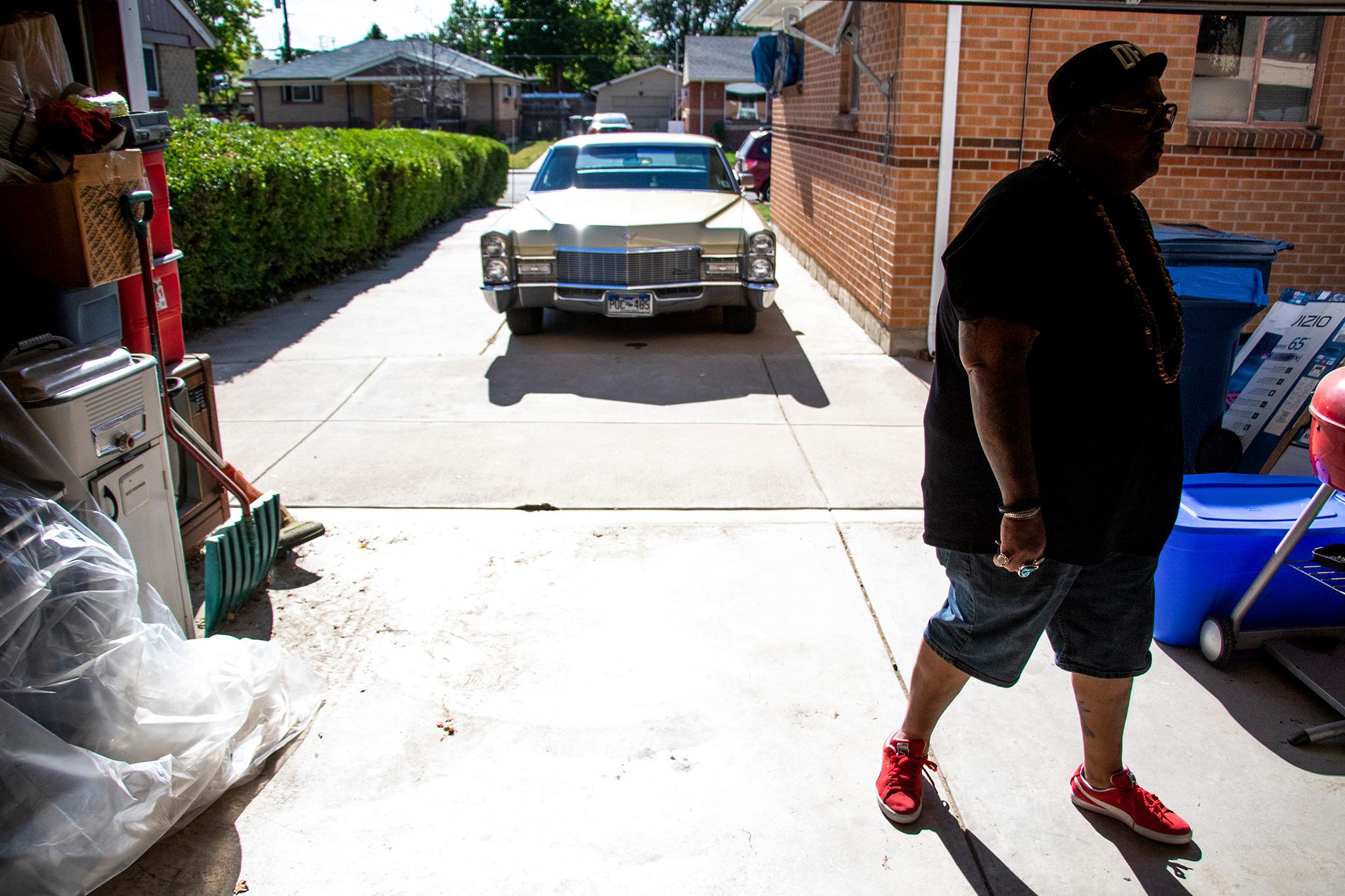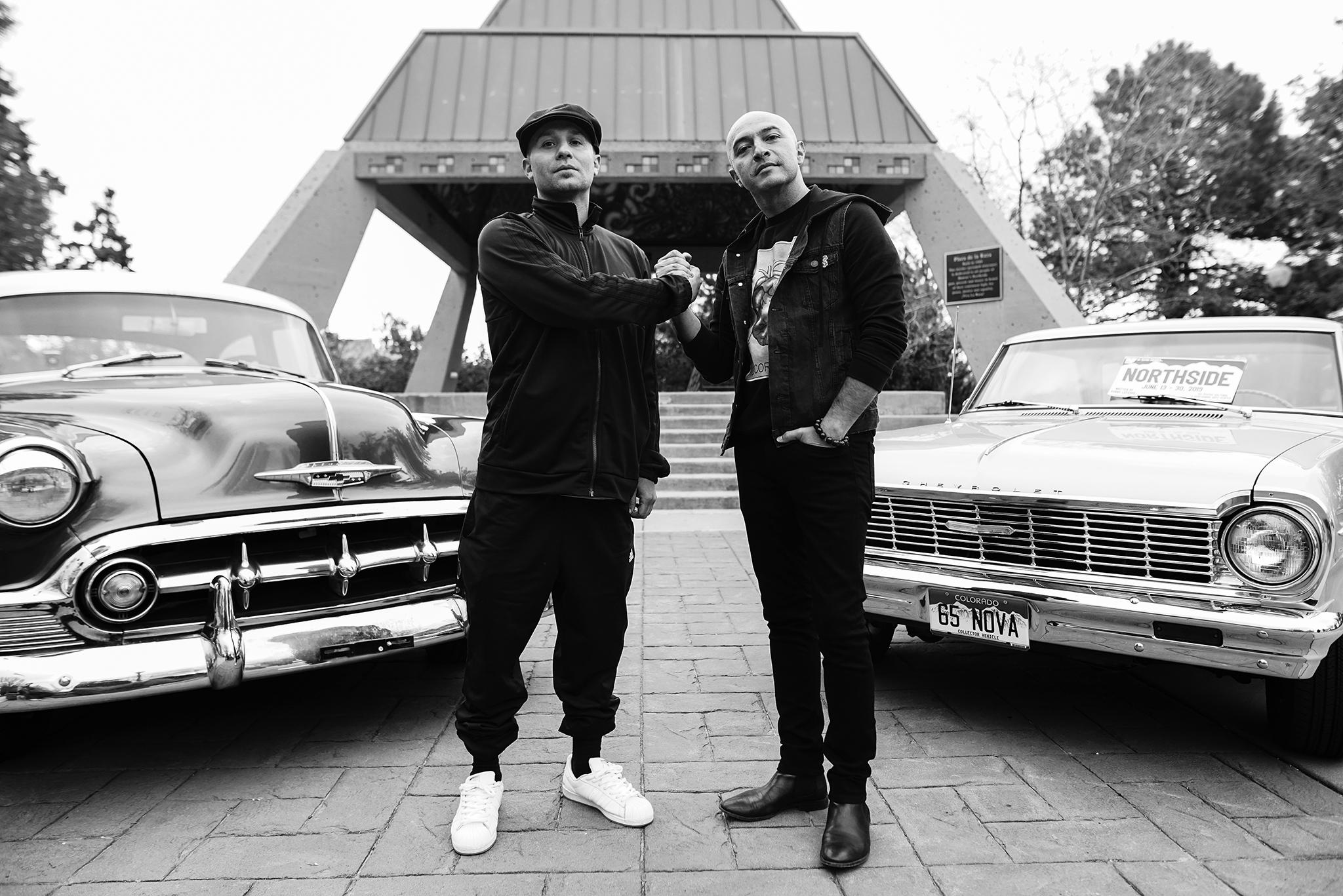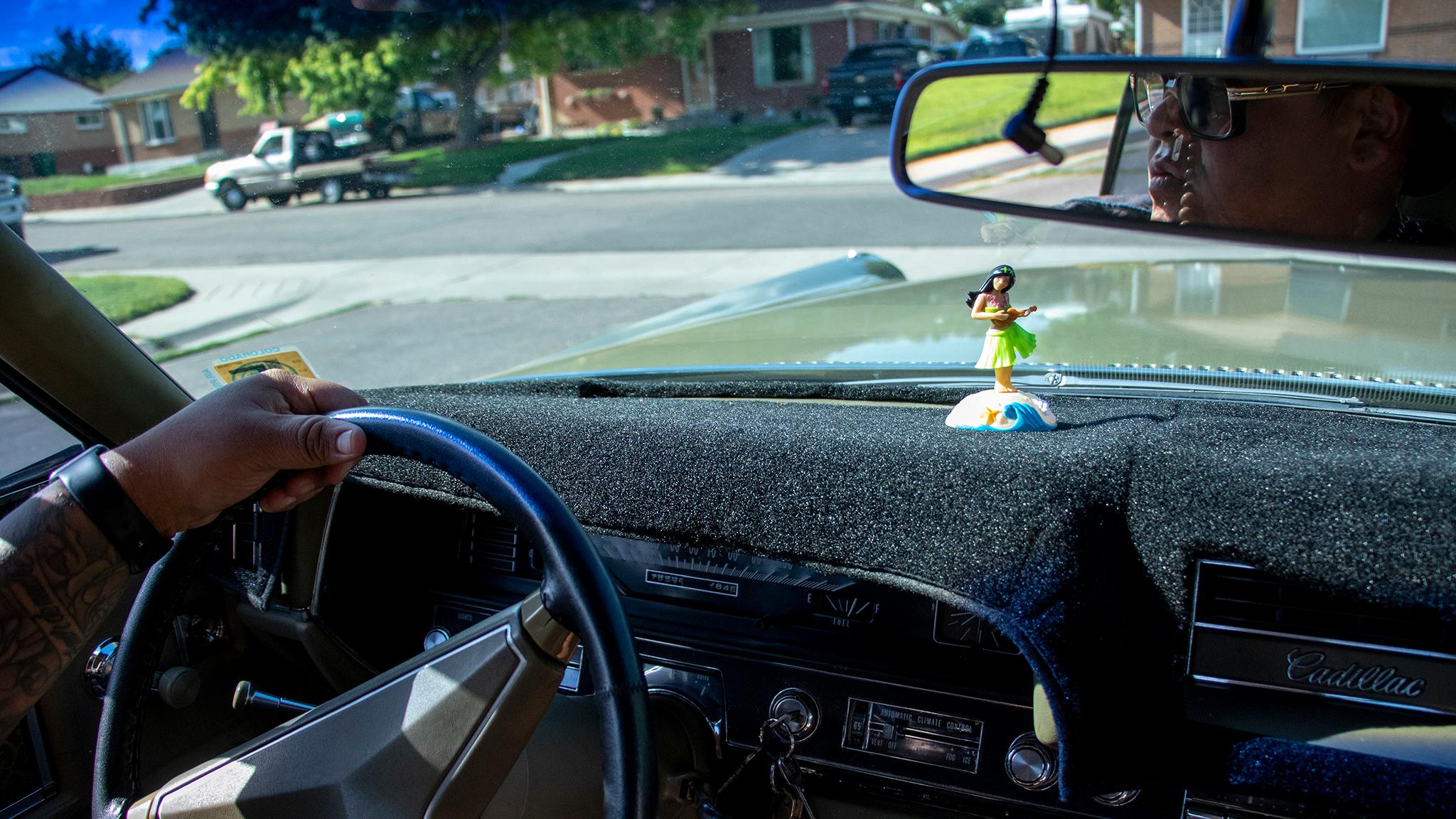It's a memory Ben Chavez cherishes, even though it once seemed like a bit of a chore: being woken up as a kid to help clean his grandfather's cars. Cadillacs, Mercury and Oldsmobiles -- all of them lined up, polished to a mirror finish.
He was basically the Karate Kid, waxing car after car. After cleaning up the Caddys, he always asked his grandfather if they were gonna ride in them. He always got a no, until three years ago, when he said his grandfather threw him the keys of a Cadillac Calais.
Now he gets to cruise whenever time allows. He doesn't have to rely on his cousins anymore.
"That's a rite of passage in Denver," Chavez said about cruising. "I can say that I've been cruising since I was probably in the sixth or seventh grade. I was the tag along. So (to) my older cousins, I was like, 'I'm going to tell on you if you don't take me!"
It's a memory probably thousands of other Denver residents share. And it's part of the reason Chavez and other residents from Denver's historically Latino neighborhoods are organizing a cruising event this month.
Chavez wants the cruise to serve as a reminder of the cultural practice stretching back decades for Chicanos in Denver. More broadly, Chavez sees the event as part of a conversation around identity in Denver. The conversation was pushed into the public spotlight last month after a story aired on CBS4.
The story featured a white man who says he lives near Barnum Park and is upset with the weekly car cruising on Federal Boulevard. The story ran online under the headline "Neighbors Fed Up With Cruising, Booming Cars On Federal" though the man was the only person featured that seemed to take issue with the cruising. (The man did not respond to a request via Facebook for further comment).

Chavez, a community organizer and artist, said the event was set in motion by the story.
Scheduled for Aug. 25, the celebration will feature a cruise down Federal Boulevard, with events starting at 1 p.m. at Columbus Park (better known to Chavez and other locals as La Raza Park) with Aztec dancing and a blessing, before the cruise begins down Federal and ends at Barnum Park. Scheduled speakers include Colorado poet laureate Bobby LeFebre and local elected officials. Denver Police Chief Paul Pazen has also been invited to speak.
"The community got upset and angry because Chicanos have been cruising in Denver since the '50s," Chavez said. "The whole point of this is to preserve Chicano culture, lowriding and cruising down Federal. That's the reason I stepped up."
Chavez doesn't cruise as often as other hobbyists, but he's hoping the city's most dedicated cruisers show up.
He's expecting at least 100 people to attend.
Last month's story led to a meeting earlier this month between Chavez and four elected officials, all Latinas representing Denver at the local and state level: Councilwomen Jamie Torres and Amanda Sandoval, state Sen. Julie Gonzales (Chavez's wife, who helped organize the meeting) and state Rep. Serena Gonzales-Gutierrez. He credits the women with helping organize the event.
The event will get formal recognition from the city when Torres and Sandoval introduce a proclamation in next week's City Council meeting. The proclamation will name Aug. 25 "Barnum-La Raza Park Cruise Down Federal Day."
Torres, whose District 3 includes Denver's Westside, said the city's continual growth means newcomers may not be aware of neighborhood's history or what some traditions mean to the city's Latino community. She notes she and Sandoval, who were both recently elected, are "new to their seats, but not new to these communities." Both councilwomen represent districts with neighborhoods with large Latino populations.
"Nobody is breaking the law when they're cruising, showing off their cars," Torres said. "This is part of what our community really looks like."
She's right: A Denver police department spokesperson confirmed it's not illegal to cruise down Federal. The department maintains a presence there, with a unit of officers patrolling the corridor on the weekends looking out for quality-of-life issues like racing and reckless driving.
Sandoval said they've reached out to Denver police about displaying the department's lowrider. (Yup, the department has a lowrider.)
"Cruising is cultural, and it's been around for a long time," said Sandoval, who grew up in the Northside and now represents it on the council. "It's not (done) to disrupt anything ... it's a way to bring people together."
Photographer Armando Geneyro has lived in Denver for 10 years.
He's documented the local lowrider scene for the past five years, but he also gets in work photographing weddings and quinceañeras. He currently works for Meow Wolf.

Geneyro is half-Colombian and said he grew up around "a bunch of Chicanos" in Southern California. He had heard about people "cruising Fedz" after moving here and ended up going out on the boulevard during a Cinco de Mayo one year and seeing rows of cars in front of Grandpa's Burger Haven.
It helped him build connections with local car clubs, who invited him to photograph their members and their rides.
"They seem like they've always been open to dispelling those myths, proving that lowrider culture is more than just about the cars and cruising, it's really about family and these bonds and these generational -- these traditions that are passed down from generation to generation," Geneyro said.
Chavez sees this year's event as a trial run. He's hoping it's the start of something taking place every year. He's hoping to organize a much larger event next year.
"Hopefully, people come," Chavez said. "And they celebrate our culture, our community and their families ... that's the goal."













